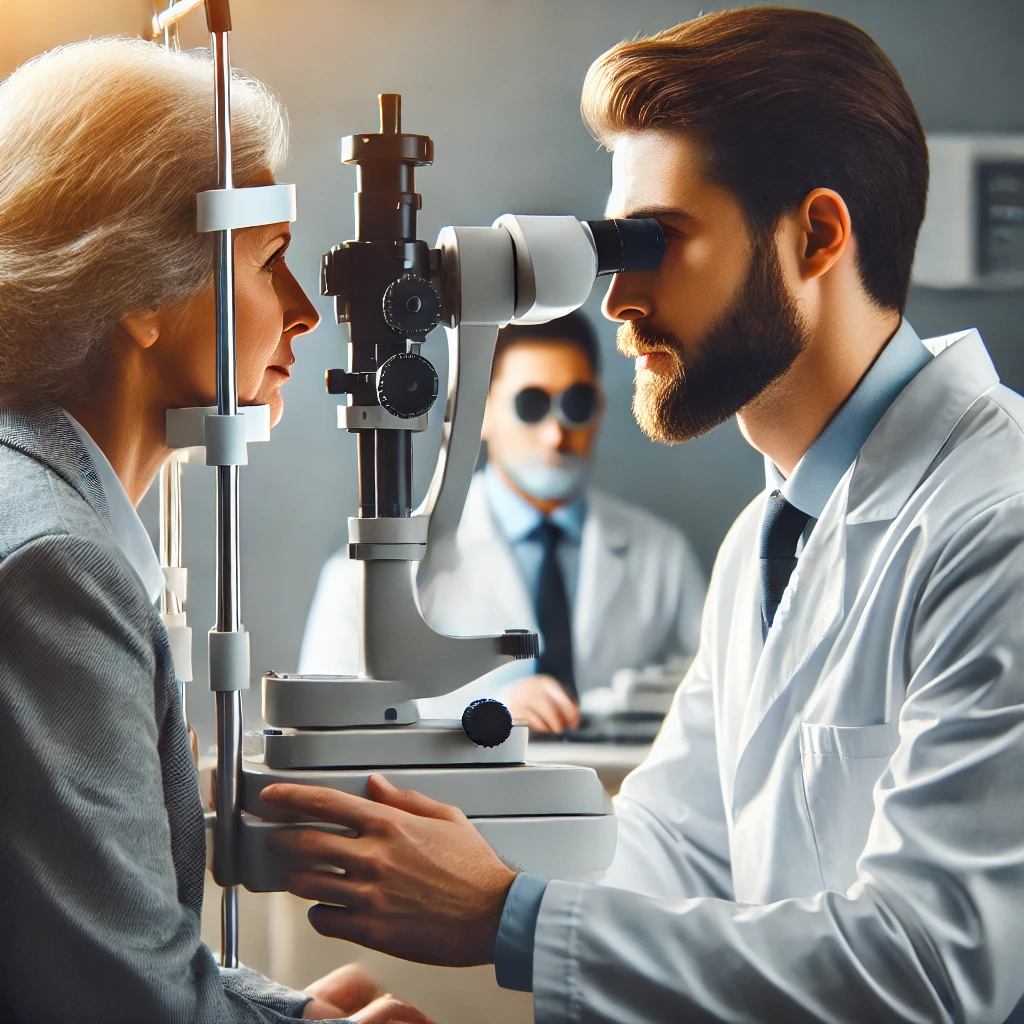Benefits of Ophthalmology
Ophthalmology is a specialized branch of medicine that focuses on the diagnosis, treatment, and prevention of eye diseases and disorders. Here are some key benefits of ophthalmology:
Improved Vision and Quality of Life: Ophthalmologists play a crucial role in improving vision, which significantly enhances the quality of life. Through corrective treatments such as LASIK, cataract surgery, and prescription glasses, patients can achieve clear vision.
Early Detection of Systemic Health Issues: The eyes can provide insights into overall health. Ophthalmologists can detect early signs of systemic conditions like diabetes, hypertension, and even brain tumors through a comprehensive eye exam.
Prevention and Management of Eye Diseases: Regular eye exams help in the prevention and early detection of conditions such as glaucoma, macular degeneration, and diabetic retinopathy, which can lead to blindness if left untreated.
Minimally Invasive Treatments: With advancements in ophthalmology, many eye conditions can be treated with minimally invasive procedures, reducing recovery time and risks compared to traditional surgeries.
Restoration of Vision: Ophthalmologists provide surgical interventions such as corneal transplants or cataract surgeries, which can restore or significantly improve vision for patients with serious eye conditions.
Comprehensive Eye Care: Ophthalmologists provide both medical and surgical care, ensuring a comprehensive approach to eye health. Whether it's treating an eye infection, performing surgery, or offering post-operative care, ophthalmologists offer a range of services to maintain healthy vision.
Ophthalmology is a specialized branch of medicine that focuses on the diagnosis, treatment, and prevention of eye diseases and disorders. Here are some key benefits of ophthalmology:
Improved Vision and Quality of Life: Ophthalmologists play a crucial role in improving vision, which significantly enhances the quality of life. Through corrective treatments such as LASIK, cataract surgery, and prescription glasses, patients can achieve clear vision.
Early Detection of Systemic Health Issues: The eyes can provide insights into overall health. Ophthalmologists can detect early signs of systemic conditions like diabetes, hypertension, and even brain tumors through a comprehensive eye exam.
Prevention and Management of Eye Diseases: Regular eye exams help in the prevention and early detection of conditions such as glaucoma, macular degeneration, and diabetic retinopathy, which can lead to blindness if left untreated.
Minimally Invasive Treatments: With advancements in ophthalmology, many eye conditions can be treated with minimally invasive procedures, reducing recovery time and risks compared to traditional surgeries.
Restoration of Vision: Ophthalmologists provide surgical interventions such as corneal transplants or cataract surgeries, which can restore or significantly improve vision for patients with serious eye conditions.
Comprehensive Eye Care: Ophthalmologists provide both medical and surgical care, ensuring a comprehensive approach to eye health. Whether it's treating an eye infection, performing surgery, or offering post-operative care, ophthalmologists offer a range of services to maintain healthy vision.
Benefits of Ophthalmology
Ophthalmology is a specialized branch of medicine that focuses on the diagnosis, treatment, and prevention of eye diseases and disorders. Here are some key benefits of ophthalmology:
Improved Vision and Quality of Life: Ophthalmologists play a crucial role in improving vision, which significantly enhances the quality of life. Through corrective treatments such as LASIK, cataract surgery, and prescription glasses, patients can achieve clear vision.
Early Detection of Systemic Health Issues: The eyes can provide insights into overall health. Ophthalmologists can detect early signs of systemic conditions like diabetes, hypertension, and even brain tumors through a comprehensive eye exam.
Prevention and Management of Eye Diseases: Regular eye exams help in the prevention and early detection of conditions such as glaucoma, macular degeneration, and diabetic retinopathy, which can lead to blindness if left untreated.
Minimally Invasive Treatments: With advancements in ophthalmology, many eye conditions can be treated with minimally invasive procedures, reducing recovery time and risks compared to traditional surgeries.
Restoration of Vision: Ophthalmologists provide surgical interventions such as corneal transplants or cataract surgeries, which can restore or significantly improve vision for patients with serious eye conditions.
Comprehensive Eye Care: Ophthalmologists provide both medical and surgical care, ensuring a comprehensive approach to eye health. Whether it's treating an eye infection, performing surgery, or offering post-operative care, ophthalmologists offer a range of services to maintain healthy vision.







